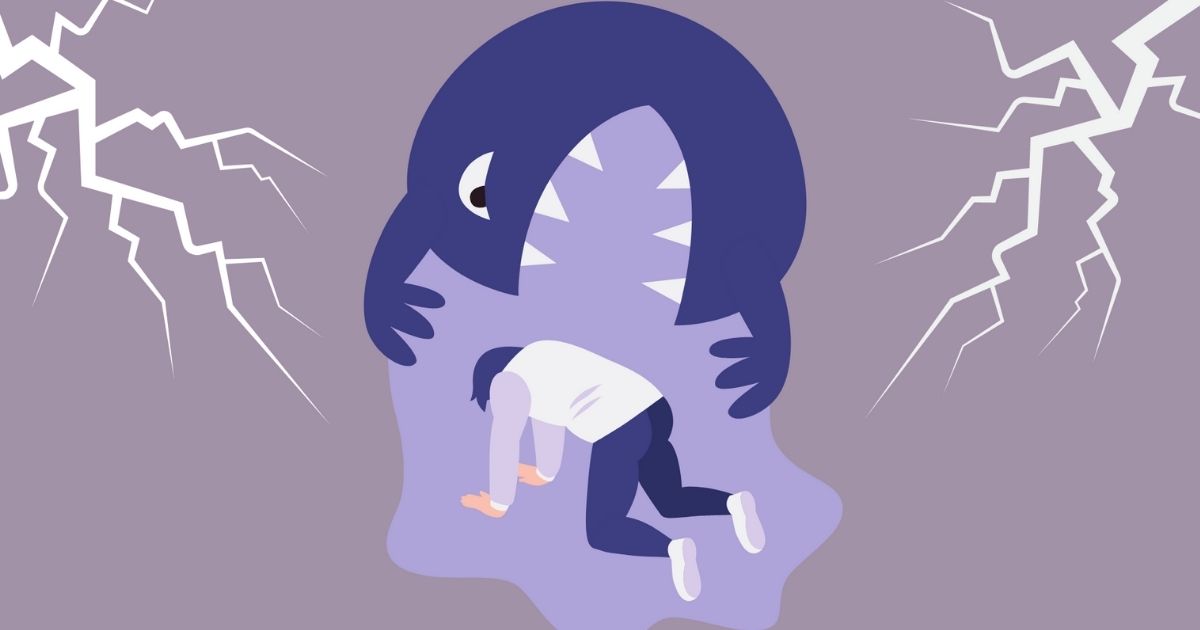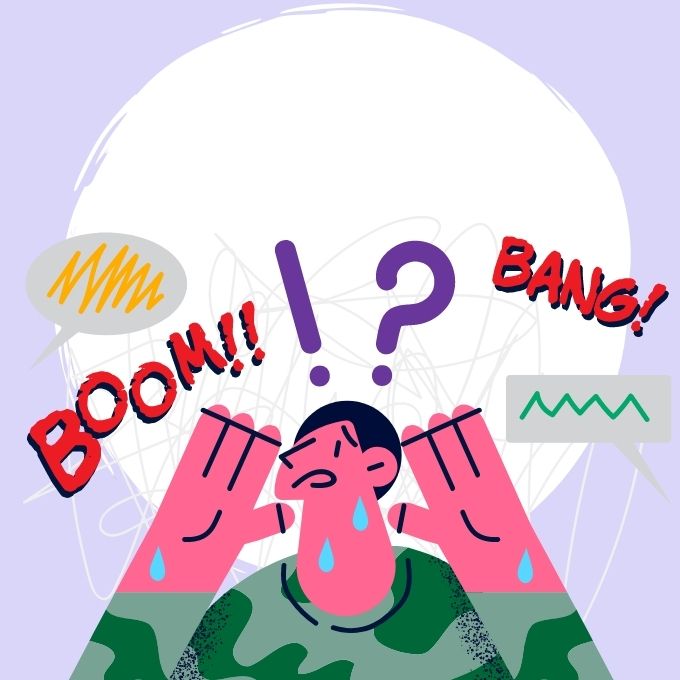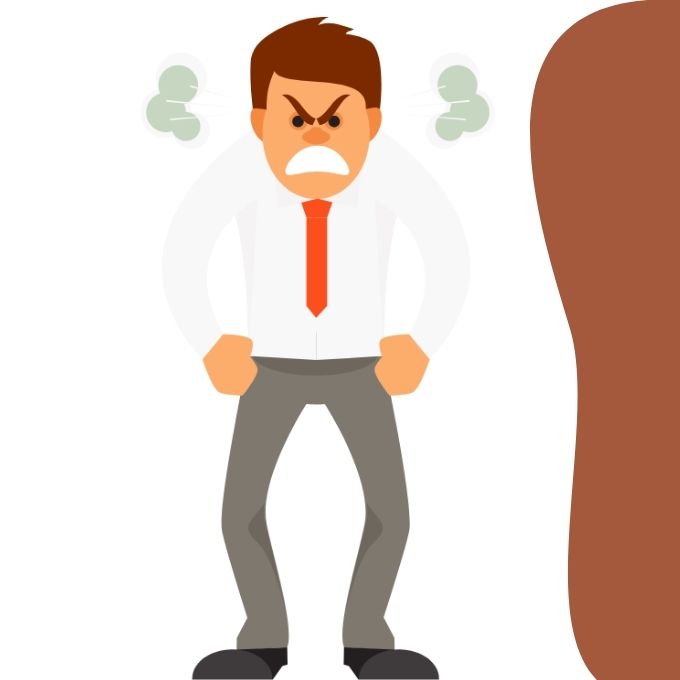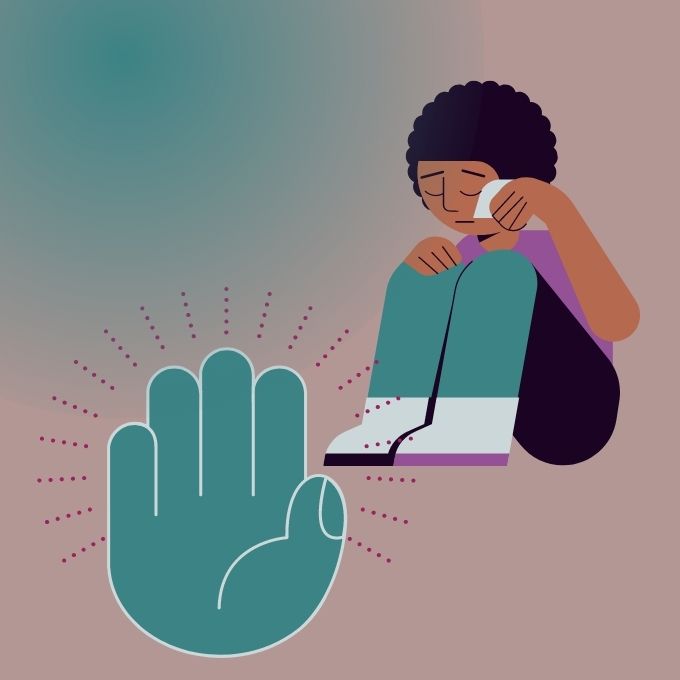
What is trauma? How does it affect you? How to help people cope with it?.
When we hear the word trauma, we usually think of a physical injury that left some functional or superficial damage. The truth is that wounds can also be found in the soul.
In the case of psychological trauma, there may be no signs of trauma, but people who have experienced it still have its effects. The effects of trauma are severe, ranging from mild to severe. For some people, trauma can have long-lasting effects.
This article will give the psychological background to understanding trauma and ways to approach someone who is struggling with a mental health condition such as PTSD (Post Traumatic Stress Disorder).
Summary of contents
- What is trauma?
- What can be possible causes of trauma?
- What is Post-Traumatic Stress disorded?
- What is the best treatment for people with PTSD?
- What to avoid saying to someone with trauma?
- How to help someone with PTSD?
- In conclusion
What is trauma?
Everyone has experiences that are upsetting or hurtful. However, there are times when these experiences are more than annoying and possibly harmful. There is a difference between temporarily distressing events and those that are traumatic. Trauma is any event that a person perceives as dangerous or threatening and has a long-term effect on that person's well-being. Trauma is the term used to describe an experience that changes how a person perceives, thinks, or feels about the world around them.
These experiences often provoke physical and emotional reactions that can last for years after the event. The effects of trauma can affect a person's relationships, work, health, and overall image in life.
What can be possible causes of trauma?
PTSD can develop after a traumatic or stressful event or a long repetitive traumatic experience, such as abuse. When a stressful event occurs, the body triggers a series of chemical changes as a survival mechanism. This can lead to excessive secretion of adrenaline and other hormones, resulting in specific brain networks changes. Several factors can make you more vulnerable to developing PTSD, such as a history of depression or other mental illness and personality traits.

Traumatic events can be:
- War conflicts
- Serious road accidents
- Natural Disaster
- Pandemics (e.g., COVID-19)
- Rape and sexual assault
- Abuse/harassment/intimidation (for example, racist or sexist attacks or attacks targeting any identity)
- Abduction/hostage-taking
- Terrorist attacks
- Daily exposure to disturbing items such as reports from emergency services and the armed forces
- Robberies
- Sudden death of a loved one
- Traumatic childbirth
Any event can be traumatic for someone specifically. People experience events differently; what may be traumatic for one person may not be for another.
People may avoid certain places or people that remind them of the trauma. People who have experienced trauma may also have difficulty sleeping or concentrating on work. For most, the reactions and symptoms of fear disappear after a short time. People who continue to experience these symptoms to the point where they affect their daily functioning in life can be diagnosed with Post-Traumatic Stress Disorder (PTSD).
What is Post-Traumatic Stress Disorder (PTSD)?

Post-traumatic stress disorder (PTSD) is a serious condition that occurs after a traumatic experience, an event that caused bodily harm or was life-threatening. This fact may concern themselves or have experienced it themselves (they were witnesses). The emotions not only remain but also get worse and become so intense that they interfere with their daily lives. The disorder begins a few weeks to months after the traumatic event and usually lasts six months. PTSD often coexists with other anxiety disorders or depression. Sometimes the sufferer may resort to excessive alcohol use or hallucinogenic substances.
PTSD is a disorder that belongs to anxiety disorders. Take a look at our previous article: Anxiety Disorders: Types, Symptoms and Treatment
To be diagnosed, patients with PTSD must have had symptoms for more than a month and have been impaired in their daily functioning.
The most common symptoms are the following:
Physical symptoms: high blood pressure and heart rate, rapid breathing, muscle contraction, nausea, and diarrhea.
Flashbacks: PTSD patients experience traumatic thoughts and memories repeatedly and intensely and feel as if they are reliving the traumatic event over and over again in the present moment. They also feel intense anxiety when certain things remind them of the traumatic event, such as the particular date of the event.

Dreams or nightmares about the traumatic event: images from the traumatic event appear in the form of a dream/nightmare during your sleep or symbolic images that remind you of the event.

A feeling of emotional numbness: inability to feel and express your feelings, feeling that everything is frozen inside you.
Inability to experience pleasure: you can't get pleasure from things you enjoyed before, and generally, you lose the sense of what pleasure is.
Separation and isolation from family and friends: staying away from people who are connected to the event or remind you of the event
Avoid trauma-related activities and situations: the person may avoid people, places, thoughts, or conditions that remind them of the trauma. Avoidance can lead to feelings of alienation and isolation from family and friends and a loss of interest in activities that the person previously enjoyed.
Hypersensitivity: difficulty sleeping, discomfort, insecurity, constant fear
Outbursts of anger, signs of aggression, and symptoms of fear or panic are rarely experienced and triggered by stimuli reminiscent of the traumatic event or the person's initial reaction.
In some cases, the sufferer may have suicidal ideation.

What is the best treatment for people with PTSD?
It is essential in cases of post-traumatic stress disorder to seek specialist treatment. In particular, therapy in combination with medication can be beneficial in treating trauma.
As far as the drug route is concerned, there are sedatives and antidepressants. In the short term, sedatives can help you feel less anxious and sleepy. However, if you want more than a few weeks, your body gets used to their effect, and they stop working and become addictive. On the other hand, antidepressants are usually given because of the depression that can develop after an injury, very different grief than usual. In cases of very severe symptoms, can also be administered.
As far as psychotherapy is concerned, its purpose is to reduce emotional and physical symptoms, improve daily life, and help the person better manage the causes of the disorder. The type of treatment depends on the severity of the signs and how soon they appear after the event.
The most well-known and appropriate approach to post-traumatic stress disorder is Cognitive-Behavioral Therapy. Through it, the person learns to recognize and change the thinking that leads to disturbing emotions and behaviors. Patients learn to examine their beliefs and the feelings caused by the traumatic event.
Equally compelling is Exposure Psychotherapy, a type of behavioral psychotherapy in which the person relives the traumatic experience or is exposed to stressful situations. This is done in a controlled and safe environment. Exposure psychotherapy helps the person deal with fear and gradually feel more comfortable with situations that frighten and stress them.
Group psychotherapy is also an essential explanation in these cases. It allows the person to share their thoughts, fears, and feelings with other people who have experienced a traumatic event or other difficulties in life.
What to avoid saying to someone with trauma?
1. ''It's all in your head.''

There will be people who tell a person who has experienced a traumatic event that everything is in his imagination. In other words, it will challenge the individual's experience and degrade their truth. The classic case is that the survivor of rape will be accused of being a liar, and this world will consider that the victim probably misinterpreted something and pulled it in his head.
This culmination is to believe that the victim is doing it to get attention. So it is accompanied by the phrase "stop being so dramatic about it." This approach is highly wrong as it nullifies the victim's experiences and feelings.
2. ''You are not the only one facing these problems.''
Avoid telling the person who has experienced a trauma that he is not the first or the last to suffer this. Your intentions may be different, such as giving courage and strength to someone standing on his feet! in fact, you somewhat underestimate the individual experience and homogenize the other's experience with others. What the victim needs in front of you is to feel that he is unique and that the traumatic event is not something that will continue to happen. This gives the feeling that the trauma will be somewhere forever since people will continue to live it, while the purpose is to stop these traumatic events in general.
3. ''I told you so.''
Perhaps one of the most annoying phrases one can hear in any case is "I told you so".." This phrase offers nothing but satisfaction to the speaker turned out to be right. For example, a woman who had difficulty with her gynecology and still tried to get pregnant succeeded and then lost her child before giving birth. The trauma created in a person, in this case, is so severe that the last thing one wants to hear is that he was warned. The victim does not need behavioral corrections and wisdom tips but acceptance from others and support.
4. ''Stop crying.''
Never tell the victim to control their feelings and stop crying. Crying is almost always redemptive and helps the victims express their drowned pain. There are no limits and regulations! Crying can be ugly; it can last for many hours with sobs. No one has the right to control and delimit the way you cry.
If the crying is daily, continuous, and lasts for a long time, then it would be good to suggest the intervention of a mental health professional, the symptoms of depression may be somewhere there.

5. ''This belongs to the past.''
The problem with telling someone that everything belongs to the past is that you tell the victim to put aside something that concerns them. This is precisely the past that the person tries to process. Instead of leaving an event to his fate, they essentially bury it and do not bring it to the surface to deal with it. And as you know, the more you oppress something inside you, the worse.
How to help someone with PTSD?
1. Don't rush the conversation
When someone opens up to you and is in the mood to share their trauma with you, do not rush the conversation. Being a good listener and showing patience is crucial when supporting someone with PTSD. The experience of the other should not be news that arouses our curiosity and makes us want to know every little detail. It is essential to give the person this time to speak and remain silent, letting them express what they want and feel ready to frame.
It may be the first time someone feels safe and in the mood to talk about their feelings, and you have to respect that. Give them the time they need to feel heard and validated.
2. Show acceptance and confidentiality
Show acceptance and confidentiality. It is necessary to show the person who shares his trauma with us the event's approval and the person himself. This means that we avoid telling the person how incredible what they experienced is, as it is a reality and something that happened. After we accept the execution of the event, follows the acceptance that we show to the person himself, where we essentially show that we appreciate him the same even after the traumatic event, and we tell him that it is equally essential for us despite the experience.

A necessary condition is to show confidentiality; that is, to tell the person that we trust him in terms of the veracity of the facts. The second part of confidentiality comes through reassuring the person that anything related to their traumatic experience can be trusted to us and that we will not disclose anything if they do not wish to do so.
3. Τell them you are there for them
Tell them you are there for them at all times. You need to show empathy and understand the person's feelings who has experienced a trauma. Be there for any conversation, hugs, or whatever they need. Show availability and that you are there to give courage. Offer a deep and genuine interest and remind them that they are not responsible for what happened and that regardless of responsibilities, they will always be worthy of unconditional love. Make them feel safe enough to share their experiences.
Tell them to forgive themselves for something beyond their control. Tell them they don't need to apologize to you or explain their actions as you understand the coincidences, mindsets, and feelings.
4. Give them time to heal
Understand that recovery is a process and that everyone has their own pace. Do not insist that the victim move immediately and seek formal legal assistance or compensation as soon as possible. Humans are not machines to follow one step at a time practically and logically. They need time to understand an incident, process their emotions, and heal.
Even the simplest; we might often push the victim without realizing it by advising him to speak and say it to as many people as possible. Not everyone is ready for this step of exposure, and indeed the one who knows more than anyone is the victims themselves.
5. Show them the way to professional help

It is definitely difficult and requires much attention because it is delicate, even in saying it orally. Still, it is necessary to show the traumatized person the way for special treatment. It would be especially helpful to suggest seeing a mental health professional to these people.
The suggestion alone is not enough as people with a mental health issue may be a little lost and may not know where to start and which issue to clear up first. It would be extremely helpful if you could do some research on your own beforehand so that you know exactly where to refer these people. Encourage them to seek treatment, and explain why this is the best way.
In conclusion
We need to understand that it’s not a weakness to feel bad to deal with trauma. It is important for anyone interacting with people who suffer from trauma to know how to approach them and help them get away from the trauma gap. Bad events, the bad world, and luck are part of our lives. As long as we get informed, set our limits, and have each other, everything is bearable. There is always light at the end of the road.
Get to know us more!
If you would like to get involved in this initiative and be a part of history in the making, feel free to shoot us an email at contact@buddyhelp.org or browse our website to discover all of the many ways you can join our BuddyHelp family and make a difference in the world.
